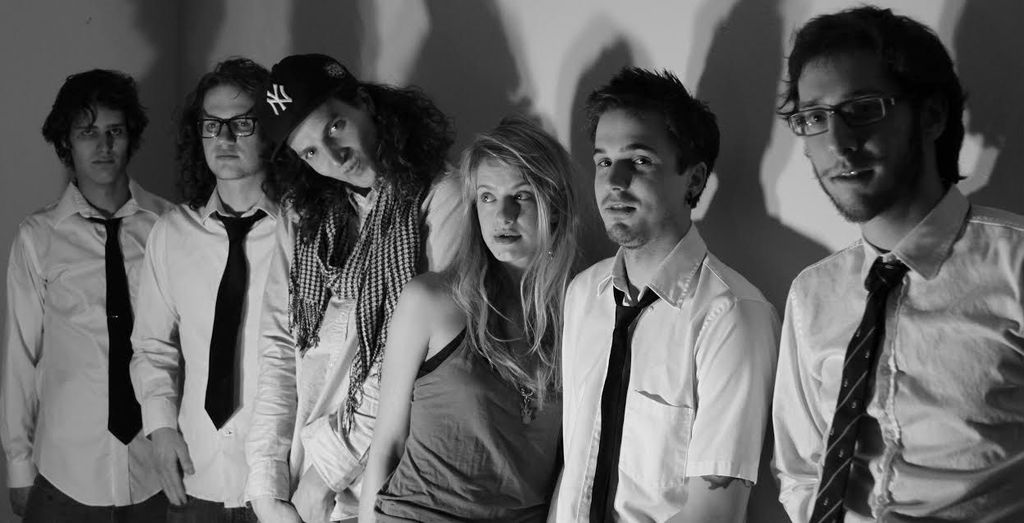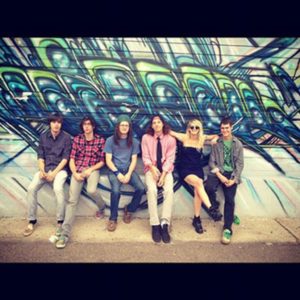 It’s all fun and games … Until you’re the next headliner at The Fox Theater.
It’s all fun and games … Until you’re the next headliner at The Fox Theater.
Meet Cold River City: a sextet from Boulder, CO that started playing because it was nice outside and, well, what other reason does one need? This (insert any genre here) group formed according to happenstance and a not-so-staunch punk-rock approach to music. Snubbing labels like a hipster denies his “hipsterdom,” CRC’s sound is explained best by it’s title.
Named after Noah John Rondeau, a hermit from the Adirondack Mountains of New York who called himself Mayor of Cold River City (Population: 1), CRC identifies with Rondeau’s self-inflicted isolation. Through an all encompassing sound which will feature blues, hip hop and reggae all in one track, CRC is floating somewhere along the ether in a limitless place few bands have the guts to explore.
Their first full length album Let Me Shine was released in February 2014, shortly after finishing an 11 day tour through Texas, Missouri, Arkansas, and Oklahoma where their reception was varied and experiences were, er, interesting. After making it to the edge of Texas and back, CRC is back home and ready to headline the Fox Theater on Thursday, April 3rd for the first time.
303 Magazine had a chance to sit down with all six members of CRC (Jeremy Baugh, Emma Fields, Cody Hart, Brian Hubbert, Austin Pacharz, and Scott Russell) for a symposium—substitute wine for weed—on staying open-minded, having fun and how to make having a stellar, six-person band look easy.
303: How does the name Cold River City correlate with the type of sound you strive for in your music?
CRC: I feel like our music is something I’ve never heard before. When I think about when Cody told us about Cold River City, the story and everything, it kind of resonated with me. I thought “well that’s cool,” because to me, there was a parallel there. We are kind of by ourselves, somewhere else.
303: Do you guys have similar backgrounds in music?
CRC: No. I think that was part of the reason it’s worked out so well. Up until this point, you’d meet those types of people where all they want to do is play that one type of music and then they’d get really stagnant really fast. Because you’d come up with like 12 songs and ehh, it kind of all sounds the same. The interesting thing is that the only connection musically that any of us have had in our past is that the four of us all used to play in some sort of punk band. Then we were like “well that was fun, let’s go make all the rest of the music now.” Every now and again we’re like “let’s do a punk breakdown here for like eight bars and then go back into the song.”
303: I would never peg you guys for a punk rock band. But I guess if the philosophy is there, that’s what punk really is, right?
CRC: I wouldn’t call us a punk band, like to define what we sound like, I would just say maybe in the way we approach music.
Cold River City is a little bit of a punk band because just the fact that it doesn’t have to be something that maybe is necessarily right as long as it’s something that you like the sound of. Then you just go ahead and keep doing it. There’s a lot of predetermined ways a song could go or ways a style can go, but if you’re just doing what your hands happen to do and you’re like “hey, I like that” then keep doing it. That’s kind of just the punk rock mentality.
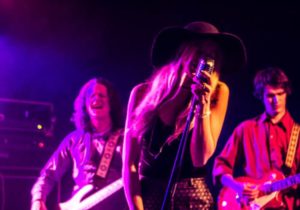 303: Did you have any unified vision when you started playing together?
303: Did you have any unified vision when you started playing together?
CRC: No. It started as straight fun. The cool thing is that from the start we all just kind of knew what each other wanted the music to sound like without ever talking about it. I knew that if I would play a guitar part I could imagine a bass line and then Austin would drop the bass line. And then I would imagine, “oh, this is a drum beat, but I don’t know how to play that” and then Scott would start playing that drum beat, and it would all just kind of come together how we all saw it coming together.
303: There are a lot of different genres present in your music which is part of what makes it so unique. How do you come up with it?
CRC: Well that’s the thing.
We don’t want to play reggae, we don’t wanna play punk or blues. We want to play all of those things. You don’t want to be conformed to one genre. We all came out of bands that were doing that. That was kind of our faux pax. We were like “we love playing music, period. All kinds of music, not just like ‘we play this, that’s it.'”
All of us have a different favorite type of music or music that we’re really getting into at this point. Brian loves hip-hop so he always brings that side to our music and we never want to be like “no, this isn’t a song for hip-hop.” If it fits in the song, it fits in the song, so we’ll keep doing it. Then we have Cody who loves electronic music so he always brings a little bit of that newer sound edge to it. The decision making process is definitely—democratic isn’t the word (like “alright, the votes are in”)—it’s more just a team effort or “how about it we try this? That sounds good, lets keep going.” Even to the extent of like “ohh, a hip-hop song! Wait, stop! Do a punk break because we wanna play punk!” Whatever, you know what I mean? And that’s what’s been so fun being with this group of people. We don’t have to do one thing or not do something else because we’re supposed to or not supposed to.
In a certain sense it’s like these are the sounds through which we express what we want to get across in a song. If we want a certain emotion, maybe we have to draw something from ska music, to kind of like, express some intention in the song or something like that. We just use all these different sounds from different genres ’cause we’re so influenced by all these different things and we use those sounds to get the ideas across.
303: Can you guys bring me through the process of where a song starts and when it gets finished?
CRC: Which song? (laughter)
For the most part, it starts out individually. One of us make a line — normally on whatever instrument that persons on, you know? I’ll make a vocal line that I like, or Austin will make a bass line and show it to one of multiple members of the band, and be like “hey, let’s just play on this real quick” — and it kind of comes naturally after that. Everybody comes up with a cool part that they like to go along with and, you know, we find one part that sounds really good. Okay, cool, that’s the A part, and then you know searching for that next part is kind of … I feel like searching for the next part of a song has usually been a group thing, somebody will come with the initial idea, and then the group will build it on that.
It’s not limited to what instrument you’re playing, its often like “how about you try whatever,” or “I’ll show you what I was thinking on your instrument.” And then sometimes is comes purely out of just jamming and then being like “wait, remember that; let’s mess with that!”
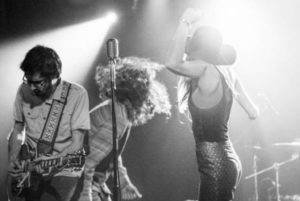 Those are the fun ones. Those are often we make. When we’re just playing a song and we’re like “that sounded really good, wait, let’s record this real quick.”
Those are the fun ones. Those are often we make. When we’re just playing a song and we’re like “that sounded really good, wait, let’s record this real quick.”
When you talk about expression, like honestly, we all make up a song up when we’re jamming. It’s both some of the most expressive things we do and the singularly only creative thing that I do that isn’t expressive with a purpose so much as what we make, you know what I mean? Although at the same time it says everything it’s supposed to at that moment. I don’t know. It’s really funny, but its very interesting. Sometimes one person will come with a completed song, but for the most part it’s “I had an idea.”
303: What’s the band dynamic like with you guys? Six people is a lot of people to be working with.
CRC: It’s a lot of people. I got made fun of last night for saying we’re a really small six-piece band. (laughter)
It’s really tight-knit and it like doesn’t feel like it’s a bunch of different competing people but like we’re all working together. It’s very egalitarian. In general, musically, we’re all on the same page. The band dynamic is a lot like a family. It’s kind of like making a deal with six people and all the things that are awesome about being in a solo act are the things that make it more difficult to be a six-piece—you know, just finding time where everybody gets together. But all the things that are negative about being in a smaller group are so amazing about our size.
There are a lot of bands out there that are one person’s vision and they kind of coach the rest to make the song what they envisioned it and that is not at all what we do. Maybe someone will take the lead on a song here or there, but it’s never like … There’s no one person you could single out as the band leader, which I think is really cool and unique. I think that dynamic is a huge catalyst to why our styles are so, you know, intricate or varied.
303: What do you guys have coming up, any tours? Summer’s coming, are you going to be at any festivals?
CRC: The Fox is the next thing coming up … We’re planning on a tour to the Pacific Northwest. We haven’t announced that yet though. We’re playing a festival, Apple Camp. It’s a little one in Oregon. But we as a band haven’t announced a tour, or the dates or anything like that. A few other things are coming up around Denver and Boulder. We’re performing on one of the main stages of Root 40 music festival in Denver, on Colfax.
303: What was your last tour like?
CRC: We made it to Corpus Christi, tornado alley and almost to Mexico. It was really cool. In October, we had our first tour and we had our van and our trailer, and we literally, we made it to the beach, we drove the van on the beach, and got to swim in the ocean in October when it was snowing here [Colorado] and that was a really awesome accomplishment. We played in a pier over the ocean, for a Halloween party.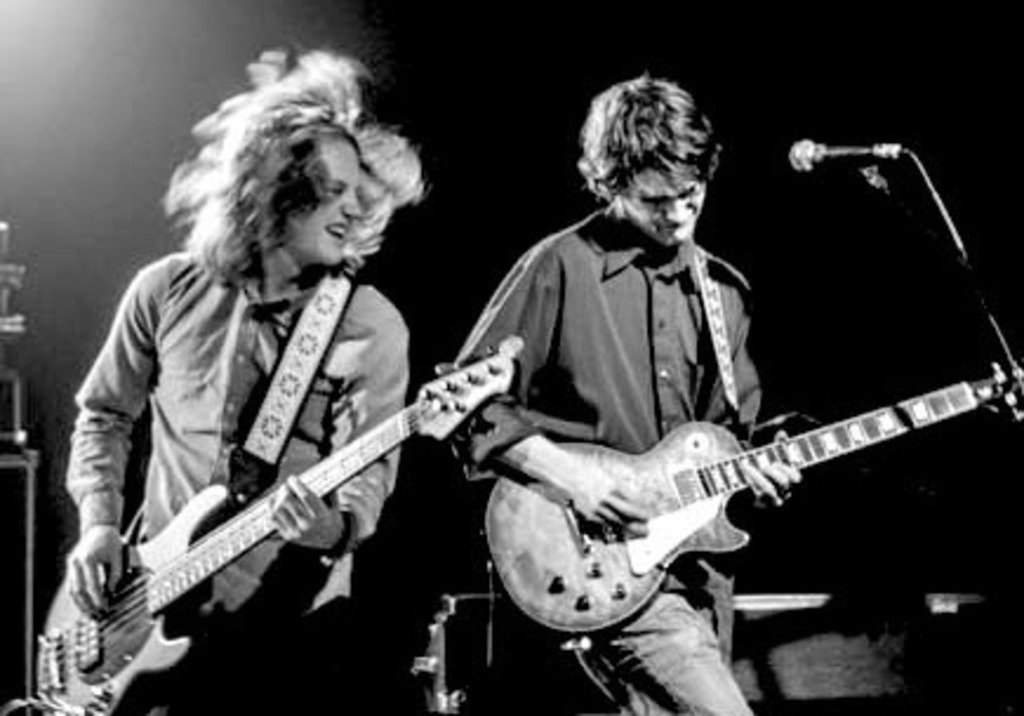
303: Tell me more about that.
CRC: A bunch of costumed tripping people … It was awesome. We were supposed to go to Houston for a show that we had no guarantee for. We only got paid if 75 people showed up to some warehouse that was BYOB. We obviously wanted to go and play anyway, but when we first got to Corpus Christi, friends of mine from three years ago that I had met in Costa Rica, showed up randomly, knew us, and we ended up hanging out. The people we played for the first night were like “hey, we can get you a show at this party at the pier.” So, they asked us if we wanted to stay and play the next night and all of us were like “uhhh, can we just stay on the beach and pretend we don’t have to do things for one day, have one day on the beach and then play a party?” Everybody’s like “yes, of course we can do that.”
The party was the best kind of disaster. Everybody in costume, a diverse crowd. There was a lot of young people who were raging hard, and old people who were in costume and raging like really hard. Most of them tripping on mushrooms. We didn’t find out until after the show. All of them we tripping mushrooms. The whole show we just thought they were crazy islanders or something. That was both the highlight and an awesome closer, like “were a success, we did that.” Then we drove all the way through Texas. So much Texas.
303: What were the crowds like on your tour, did people know who you were?
CRC: Nobody knew who we were. A few people came, like we knew some friends in a couple of the cities, but for the most part, everybody who saw us didn’t know us. Turn-outs were good for the most part, surprisingly varied.
In the smaller towns we were hits, because we were the only thing happening that night. We went to Stillwater, OK where we didn’t know a single person in that town or within a radius of about 50 miles. But the bar was raging and they kept buying us drinks. It’s just that there’s so much music going on in big cities that the small towns would get crazy and the big cities wouldn’t be a bad turn-out but just a different scene.
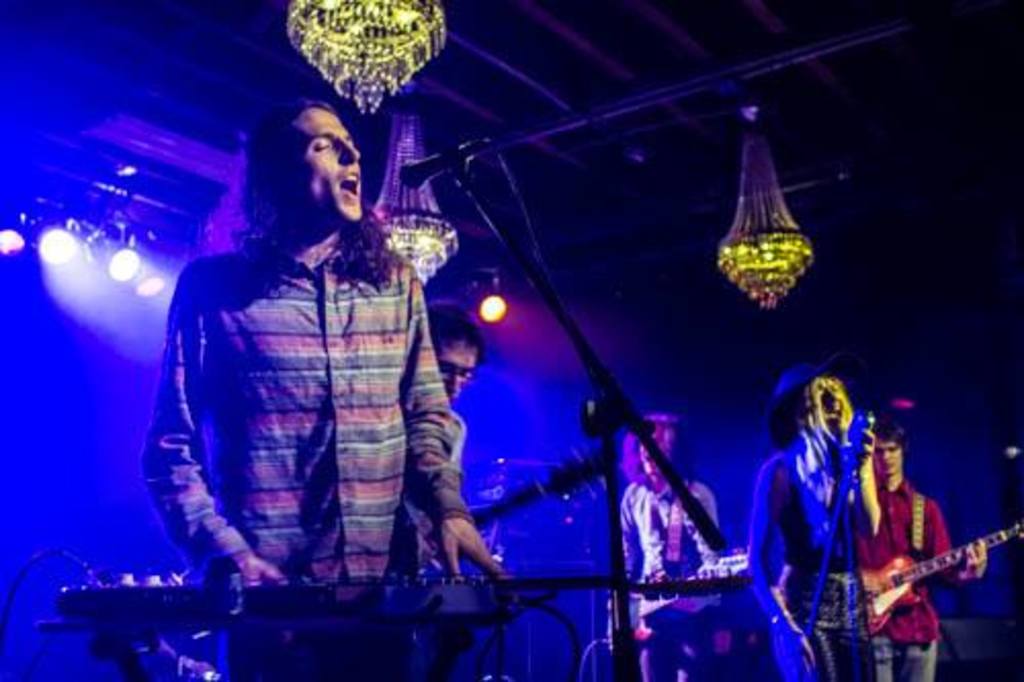 We played bigger venues too. In Austin we played a pretty big venue compared to most of the other ones. Austin was great because you want to get to play Austin. Which was killer. It was really fun. We’ll keep going there. Every time we drive by, we’re going to Austin. One day people will recognize our name. It’ll be good. I guess you know the next step for us is kind of taking on the tactics (if you can call them that) that we did with Boulder, just localizing in other places. Just going and playing as many of the places we’ve played, and new ones, again and again. I think that’s the next goal.
We played bigger venues too. In Austin we played a pretty big venue compared to most of the other ones. Austin was great because you want to get to play Austin. Which was killer. It was really fun. We’ll keep going there. Every time we drive by, we’re going to Austin. One day people will recognize our name. It’ll be good. I guess you know the next step for us is kind of taking on the tactics (if you can call them that) that we did with Boulder, just localizing in other places. Just going and playing as many of the places we’ve played, and new ones, again and again. I think that’s the next goal.
Written by Erica Lindberg of 303 Magazine.

